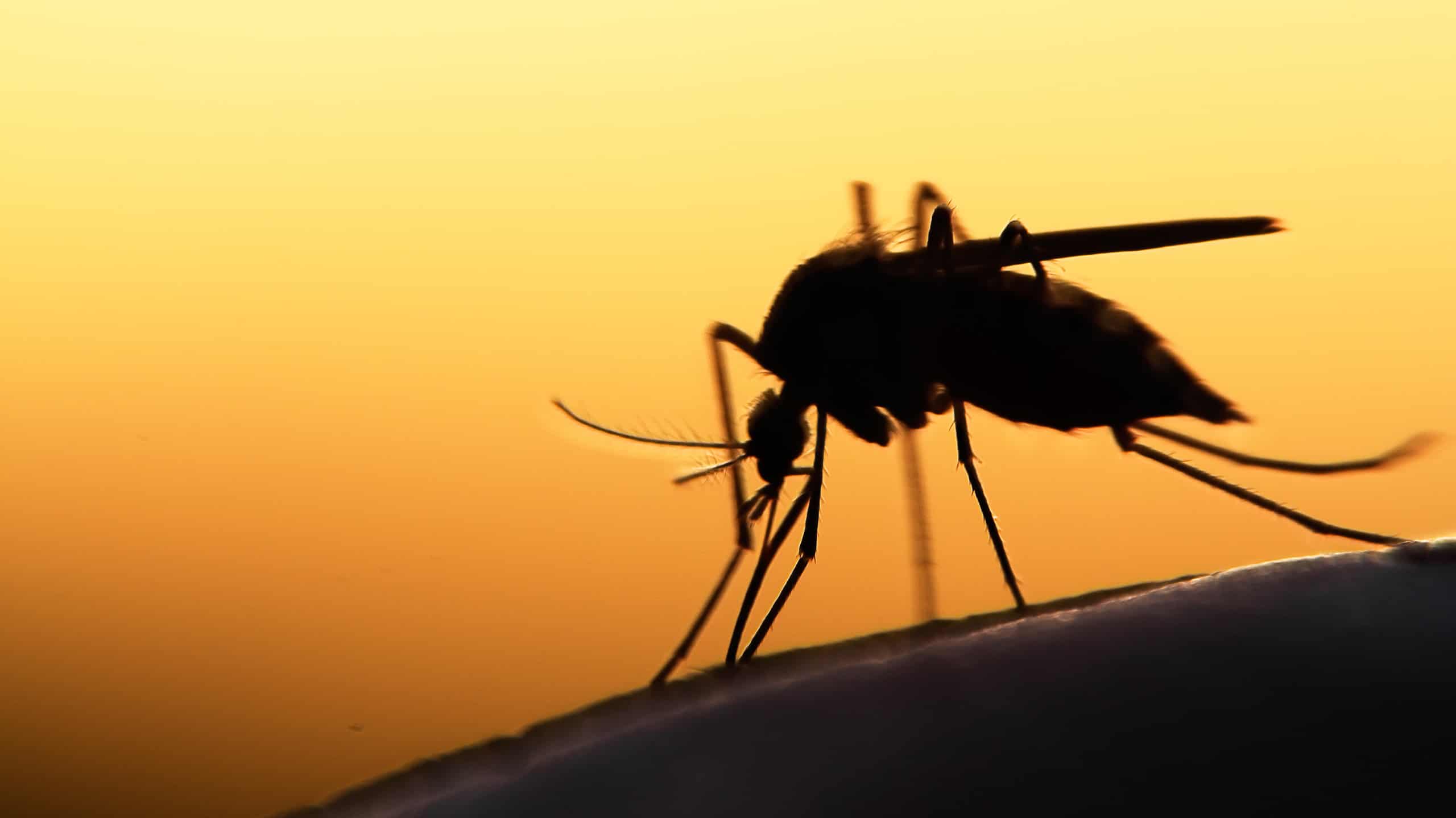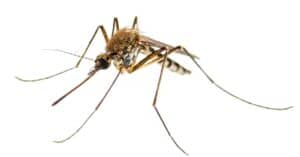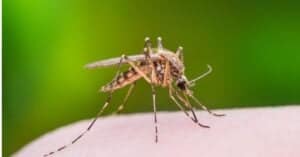Small but mighty, these insects pack a powerful punch with their bites. Mosquitoes can carry various diseases such as malaria, yellow fever, West Nile, and Zika. For this reason, these pesky insects are sometimes ranked among the most dangerous animals. Many people want to avoid being bitten by these annoying, itch-inducing creatures but don’t know how. Mosquitoes (Culicidae) seek people out due to three main reasons, breath, sweat, and temperature of skin. Now there is a fourth reason in the mix, color. That’s right, what you wear can actually help or hurt you when it comes to being a target for mosquitoes! This article will cover the top four colors that attract mosquitoes.
Top 4 Colors That Attract Mosquitoes
1. Red
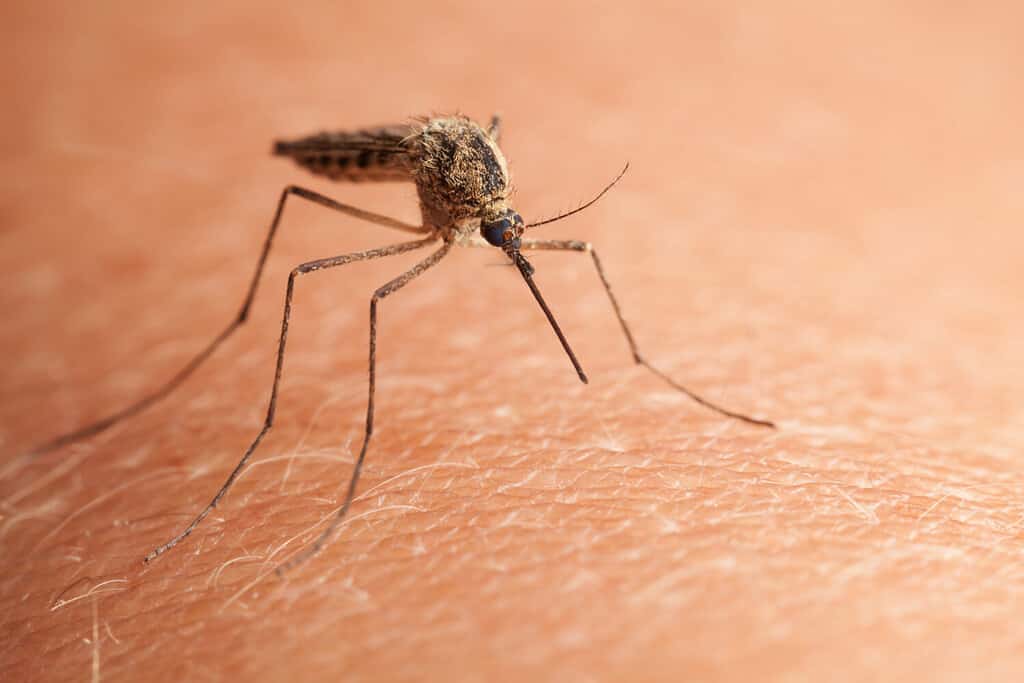
Given the fact that their food source is blood, it’s not surprising that the color red attracts mosquitoes.
©Anest/Shutterstock.com
Mosquitoes mainly locate their prey by sense of smell. When we breathe, we emit carbon dioxide which is an indication to the mosquito that prey is near. That smell stimulates their eyes to begin to look for specific color hues to better alert them to where their prey is. Human skin, regardless of its pigmentation, gives off a red-orange hue to the mosquito’s eyes. This is why the color red is what mosquitoes are most attracted to. Dressing in red colors only exacerbates the attraction of mosquitoes to you.
Although you cannot change the red pigmentation that radiates from your skin, dressing in colors that mosquitoes tend to avoid — such as green, white, purple, and blue — can help make you less of a desirable host to them. In a recent experiment, researchers showed female yellow fever mosquitoes dots of different colors. Those mosquitoes showed no interest in any color until researchers released carbon dioxide into the test chamber. After smelling the carbon dioxide, the females had a preference for certain wavelengths, in particular red.
2. Orange
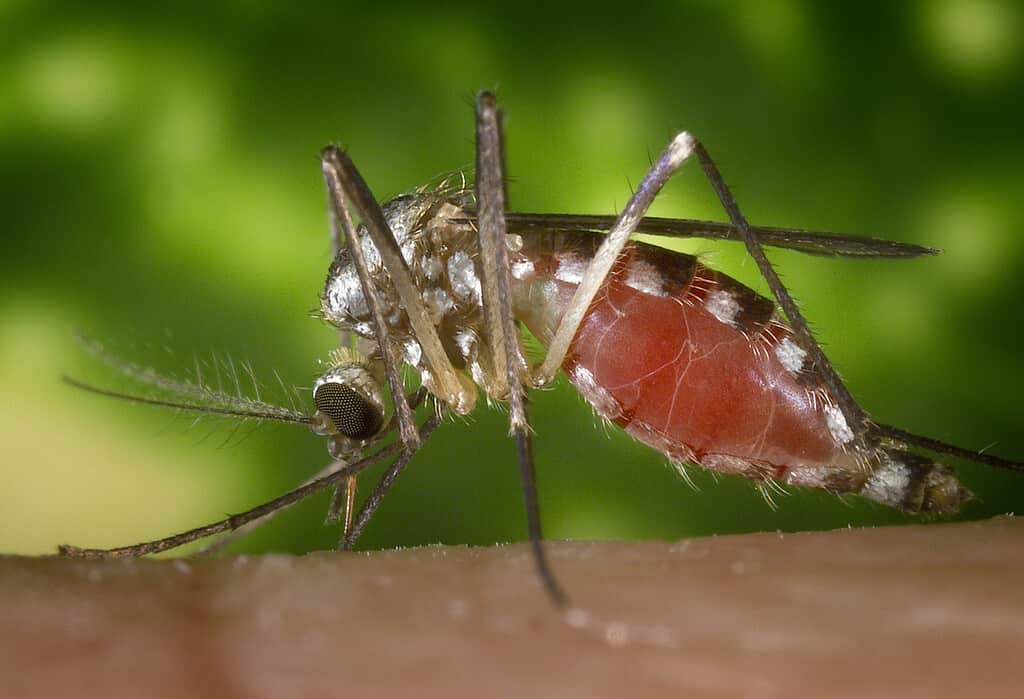
As orange is so similar to red, it also attracts mosquitoes.
Similarly to red, orange is another favorite color of the mosquitoes. Besides the fact that our skin gives off the same hues, the size of the wavelengths also match up. Mosquitoes seem to prefer colors that correspond with longer wavelengths of light. Red and orange have these longer wavelengths. Human skin — due to its red-orange hues — already gives off these long wavelengths of light, so wearing orange clothing only further exemplifies these wavelengths to mosquitoes. It is like ringing the dinner bell and then donning a flashing outfit that says dinner this way!
Similarly to the experiment mentioned previously, when presented with carbon dioxide and a human hand, the mosquitoes willingly flew towards them. However, when the same smell and the same hand were presented — but inside of a green glove — the mosquitoes had no interest.
3. Black
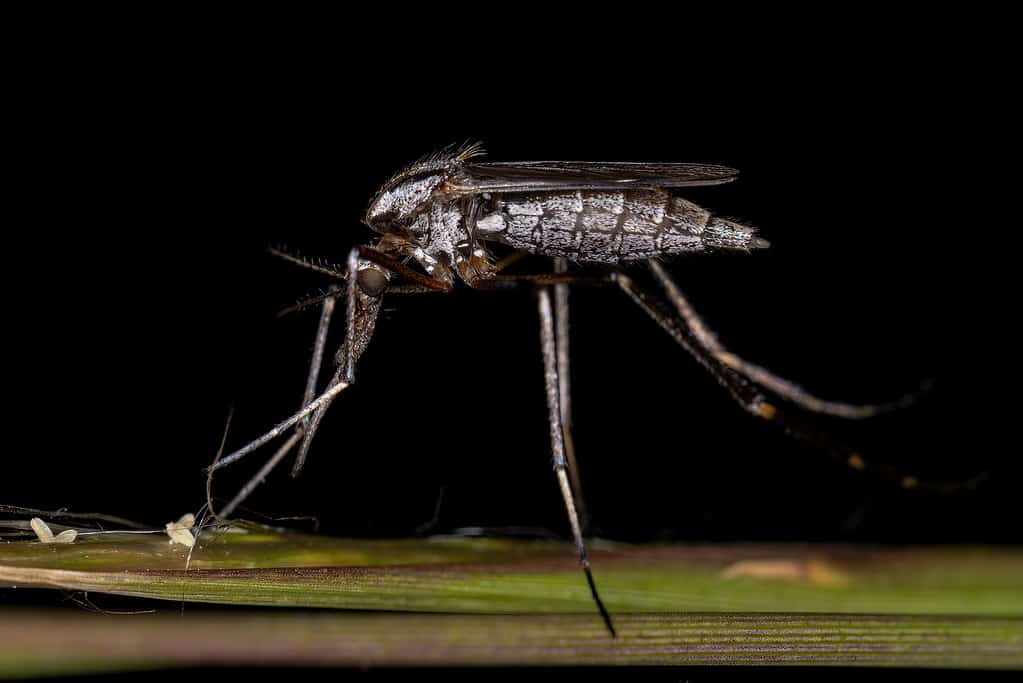
Because the color black traps more heat, mosquitoes can use their heat-sensing antenna to detect it easily.
©Vinicius R. Souza/Shutterstock.com
Black is a favorite color for the mosquitoes because it is easier to spot. Black is a dark color, which means that it traps more heat. Mosquitoes use their heat-sensing antenna to seek out prey. Wearing dark colors that hold in heat will raise body temperature. Warm skin or body temperature shows us as a target for hungry mosquitoes. Also, holding in the heat will cause you to sweat more, and our sweat releases carbon dioxide — a mosquito’s favorite scent.
4. Cyan
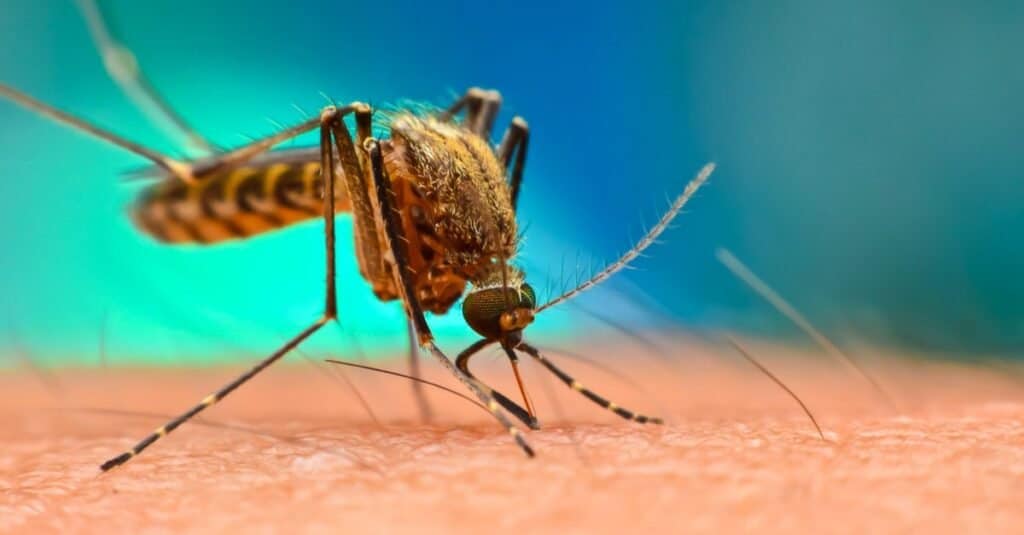
While mosquitoes typically avoid hues of blue and green, they seem to show a preference for cyan.
©Digital Images Studio/Shutterstock.com
It may seem surprising that cyan appears on the list of colors that attract mosquitoes because they are said to avoid blues and greens. Since cyan is a combination of blue and green, it’s puzzling that mosquitoes are attracted to this color. Cyan also does not have particularly long wavelengths, like the other colors on this list. However, despite these differences, mosquitoes still seem to show a preference for this color. In fact, when tested across the spectrum from ultraviolet to far-red wavelengths, the mosquitoes showed a high sensitivity toward the cyan-green wavelength.
When presented with dark blue, dark gray, dark green, and cyan objects, the mosquitoes showed a strong preference for the cyan objects. Mostly ignoring the dark blues and greens, the hue of the cyan seemed to appeal to them. Their ability to distinguish between certain hues of similar colors (ie. green and red, cyan and green, and cyan and blue) suggests that there are other factors in play. Their ability to differentiate between such close colors and hues indicates that perhaps their opsin (photoreceptor molecules that help with light reception) play a critical role in observing and identifying certain colors.
Summary of the 4 Colors That Attract Mosquitoes
Below is a table that sums up the 4 colors that attract mosquitoes and the main reason they do so.
| Rank | Color | Wavelength | Reason for Preference |
|---|---|---|---|
| 1 | Red | 650nm | High wavelength, resembles the same hue as skin. |
| 2 | Orange | 600nm | High wavelength, resembles same hue as skin. |
| 3 | Black | No wavelength, absence of physical light. | Dark color, easy to spot, and traps in heat. |
| 4 | Cyan | 490-520nm | Reason unknown, but a strong preference has been recorded. |
Additional Protective Measures

Common natural smells are great deterrents for mosquitoes. Mosquitoes hate the smell of citronella and rosemary.
©rawf8/Shutterstock.com
There are other measures that you can take to rid yourself of mosquitoes other than avoiding their favorite colors. If you have an infestation and you are trying to get rid of it or limit more mosquitoes from entering your home, you can do the following:
- Check your sinks —or damp, humid places — this is where they like to spawn.
- Repair any damaged windows or screens where they may be entering your home.
- Call an exterminator and/or use EPA-registered insect repellent to kill remaining mosquitoes.
To reduce the likelihood of mosquito bites while outdoors, you can take any of the following actions:
- Use a store-bought insect repellent.
- Burn citronella candles or torches.
- Invest in a bug zapper.
- Use natural repellents such as rosemary, peppermint, and lemon thyme.
- Keep fans handy and have them blowing on you. This will keep you cool so you sweat less and it prevents the mosquitoes from flying too close to you.
Common Mosquito Questions (FAQs)
Do all mosquitoes bite?
Only female mosquitoes bite.
Do all mosquitoes like the same colors?
Different species may have different preferences, however with the studies that have been done so far red, orange, black, and cyan seem to be the most attractive colors for mosquitoes.
What colors should I wear to avoid mosquitoes?
Light colors are harder for them to hone in on. In addition, they seem to regularly ignore shades of green, blue, and purple.
What smells do mosquitoes hate?
Mosquitoes hate certain essential oils, including lavender, citronella, lemon, and cinnamon.
Do mosquitoes like certain blood types?
Studies have shown that mosquitoes prefer people with Type O blood. Mosquitoes’ least favorite blood type is Type A.
Thank you for reading! Have some feedback for us? Contact the AZ Animals editorial team.

